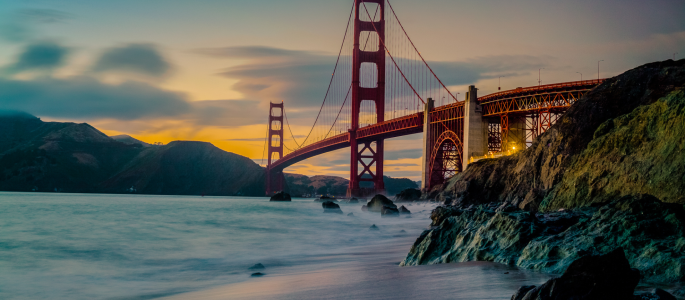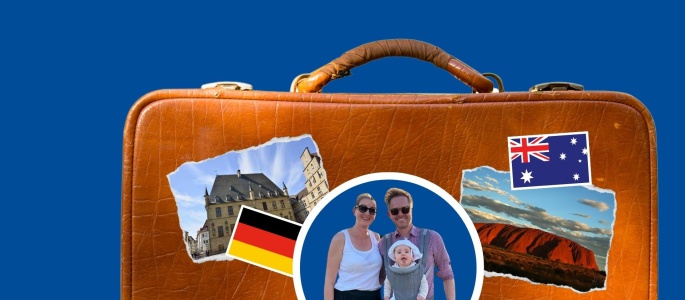
Interview with Jost Hellmann "Not bigger is better, better is better."
Mr. Hellmann, this year we are celebrating 150 years of Hellmann Worldwide Logistics. Over the decades, Hellmann has developed from a regional northern German freight forwarder into a global logistics provider. You were at the helm of the company for around 40 years - what does the anniversary mean to you personally?
You can imagine that I feel great joy, but also a little bit of pride. I am proud that Klaus and I have succeeded in passing the baton we inherited from our parents to Reiner Heiken and the Board of Management. And I am proud that we could hand over a company that is globally successful. Klaus and I have really done a good job here, if I may say so. Of course, I now wish for Reiner Heiken and his team to lead the company just as successfully into the future. I am also pleased to see how motivated our many employees around the world are. That gives me the feeling that I have done many things right in my professional career.
What was it like for you to grow up in a family that had already been running the company for three generations - did you feel the pressure of this responsibility when you were young?
No, I didn't. The company was much smaller back then. I was already a shareholder at the age of 14, but it wasn't clear then that I would join the business later on. My mother wanted me to become a lawyer since my brother, my cousin Klaus, and my father - they were all already working in the company, which merely focused on northern Germany at the time, and I didn't know whether there would even be room for me there. So, I first studied law in Münster and then worked in the USA. Then someone there asked me if I would like to go to Hong Kong for on their behalf.
So my parents, especially my father, never put any pressure on me, and that's how I handle it with my children, too. My daughter Kiki, for example, is involved in social work for severely disabled children and migrant families while studying sociology in Hamburg, and I have great respect for that. My son Alex has also gone his own way after completing his Master's degree at the London School of Economics and Political Science (LSE) and now works in a SaaS start-up (Software as a Service, editor's note). I think that's also very important.

Would you say that entrepreneurship came naturally to you?
When I was a student in Münster, I founded a squash facility - that was only the third in the whole of Germany, and it became very successful. So I was already an entrepreneur as a young man.
With the move to Hong Kong, which came rather by chance for me, it was clear to me that I could also develop something in this environment, which was new to me. After all, globalization began in Hong Kong at that time. Companies were no longer only producing in Europe, but were also buying in the Far East. Initially, I worked in Hong Kong in a purchasing office for an import company from Hamburg. I had just started there when the Hamburg parent company went bankrupt, and so the employees in Hong Kong had to look for a new job. Thank God I met the station manager of Kühne+Nagel there and got a job offer from him. And I immediately saw what opportunities the market in Asia offered.
Did your time in Hong Kong and later in the U.S. spark your plans to develop Hellmann into a global player?
That was around 1980 - a time when many companies, including large textile companies, were starting to source in Asia. I remember it well: I wrote a Telex to my father at the time saying that I wanted to open a Hellmann office in Hong Kong. I received the sobering reply that the market was too small and already taken. I replied somewhat flippantly that the market had already been taken in ancient Rome and hinted at the great market potential in Asia. I strongly believed that we could grow there with our European customers. Klaus Hellmann then came along with his wife and we decided to make it on our own - against the resistance of the management at the time.
I was then quickly able to hire two employees I knew well, Lucia Fung and Carol Tsang, who then shaped our company in Hong Kong for over 35 years. We were already profitable in Hong Kong after our first year, which was a very great achievement. That first office in Asia was a kickstart. After that, we expanded into Australia, then into South Africa and North America. As the world's largest economic power, North America was of course an important but also difficult market for us to capture.
How did the move across the Atlantic go?
In North America, we made big losses at the beginning, because, from today's perspective, we expanded too quickly. So I went to the USA myself to be able to manage this personally. How did that work out? It took an enormous amount of work and effort, and a long time. But with my experience from Asia and Europe, I knew that we could not be a true global player without the USA. And so, together with Klaus Hellmann, I made the decision to tackle this difficult market as well. For us as a "northern German freight forwarder," that was, to put it bluntly, like taking a big gulp from the bottle - but from today's perspective, it was the right strategic decision.
What was the most important or formative decision you ever made in your professional career?
Certainly the decision to internationalize, no question. I think it gave us the opportunity to position the company sustainably. Because I remember many other medium-sized forwarding companies in Germany that no longer exist today. They were sold or had to go out of business. By expanding globally, we were able to reach a size that prevented a similar fate for us.
I made a second important decision when I turned 60. At that time, we already had over 10,000 employees globally, and I felt it was time to give the company a new structure for the future. With today's SE structure (Societas Europaea, editor's note), we have an Executive Board and a professional Supervisory Board that makes trend-setting decisions together, reflecting our current size and development potential. I think we can all see that this step was important for a sustainable setup.
You mentioned your father at the beginning. What was the most important piece of advice you ever received from him?
I don't think he ever gave me any real advice, but he modeled a life for me to follow. My father was an incredibly agile man and always open to new things. He always supported me when I had an idea - like with the squash court in Münster, for example - and he would say "just do it!". I also remember him once quoting Goethe's Faust: "What you have inherited from your fathers - Acquire it to possess it." I didn't understand how true that quote was until much later. But, from my father, I also learned humility and modesty. And he modeled for me that life is not just about work, but that it is important to have other interests besides work. True to the Chinese philosophy: "Yin & Yang" - you always need a balance in life.
You co-initiated our F.A.M.I.L.Y DNA years ago. How do you assess its significance today?
At Hellmann, I think we've always had a strong family or corporate culture. Of course, it was easier to live by this in the early days because everyone knew everyone else. With our rapidly growing company, it was then very important for us to maintain this culture. That's why we laid down the guiding principles of our DNA - also to set ourselves apart from our competitors.
I remember that in marketing, we developed a new company brochure every two years and always depicted airplanes, ships, warehouses and trucks there ... over ten years, similar designs again and again. At some point I sat down with our advertising agency and said, "That can't be the difference, our competitors use the same ships, the same airplanes and the same means of transport, so what's the difference? Our employees, they make the difference!" That was the initial inspiration for the development of our F.A.M.I.L.Y DNA.
How do you perceive it today - from a perspective with a little more distance?
I am always insanely happy when I talk to Reiner Heiken and he says that he wants to revive exactly this philosophy. Many people who have been with us for a long time, even outside Germany, for example in South America, the Middle East and many other regions, still live this F.A.M.I.L.Y DNA very intensely, which I very much welcome. And I am very pleased that the Executive Board around Reiner Heiken is currently reviving and expanding this theme.

What were the biggest milestones in our 150-year history for you?
There have of course been many milestones in the 150 years, starting with the founding in 1871, the reconstruction after the two World Wars, the establishment of the “Elferkreis”, an association of several medium-sized logistics companies in Germany, the DPD and the development of international business, to name just a few. But there was also an early focus on the digital world; Hellmann was a leader in IT at the time. We were one of the first companies to introduce the AS 400 and also to use personal computers in our operations. Klaus Hellmann initiated a lot of things in this area. Of course, he was also the initiator for the topic of "sustainability" at Hellmann. We were one of the first companies to green our roofs, plant trees on a large scale, shift shipments to rail, use the “Lang Lkw” (Longer Heavier Vehicle (LHV), editor’s note), and so on. So the topic of "environment" is certainly also a milestone in our history. Nevertheless, we must look to the future here and continue to expand our efforts in this area.
You once said you would like to continue visiting customers. Do you miss the day-to-day business today?
It's obvious, I've been visiting customers all my life and still enjoy doing so. There aren't many companies anymore where the name bearer still sits in person with the customer, and they also appreciate it very much. And we mustn't forget, you learn a lot when you sit face to face with the customer. We get feedback on the quality of our service, we listen to their expectations and we get an assessment of market developments and trends and the strengths and weaknesses of our competitors. But no, I don't miss the day-to-day business itself at all, because I'm lucky enough to have other interests. I still play competitive golf with a handicap of 3.8. I like to travel, and I have many friends with whom I do that a lot with. So I don't feel boredat all (laughs).
What do you think are the biggest challenges we face as a company today and in the future?
Apart from all the difficulties currently associated with the pandemic, I see an emerging conflict between China and Taiwan, which not only unsettles the Asian region but could also have drastic consequences for the global economy. I am also concerned about the topic of "digitalization". Thank goodness we are currently moving in the right direction here with massive investments, although we certainly still need to position ourselves better digitally.
A quote of yours has taken on a life of its own within the organization: "Not bigger is better, better is better." How do you assess this quote today against the backdrop of our Fit4Growth growth trajectory. What size is still healthy?
"Not bigger is better, better is better!" - that says it all. I firmly believe that this saying still applies today. Our competitors have made incredible acquisitions recently and have become much bigger. But they seem to be losing touch with their customers in the process. I believe that a company like Hellmann - globally represented and digitally well positioned - has an incredible opportunity because of its proximity to the customer. But of course we need a certain size. We need momentum, i.e. a certain number of shipments and tonnage, in order to be able to operate effective consolidation services, for example, and to be an important customer for our air freight and sea freight carriers. But size alone is certainly not the deciding factor. The customers I talk to all urge, "Just keep your customer proximity!"
Final question: what course do we need to set in order to remain successful for the next 150 years?
Here I am thinking of three things. First, we need enough capital to create a solid foundation on which to base the company, even if there is an economically lean period to bridge. I am very pleased that we have been able to achieve this in recent years. I have already mentioned the second point: I hope we retain our culture and allow employees to be "entrepreneurs in the company". I have already mentioned my third wish: I have visited many customers in my life, and, whenever I visited companies that were successful, their people were cheerful and laughed. In companies that were getting into trouble, you could see that the employees withdrew and you noticed that the mood was not right. So, I am very happy these days that we are experiencing a spirit of optimism at Hellmann and that I am meeting smiling faces everywhere. My wish is that this will continue for a long time.




